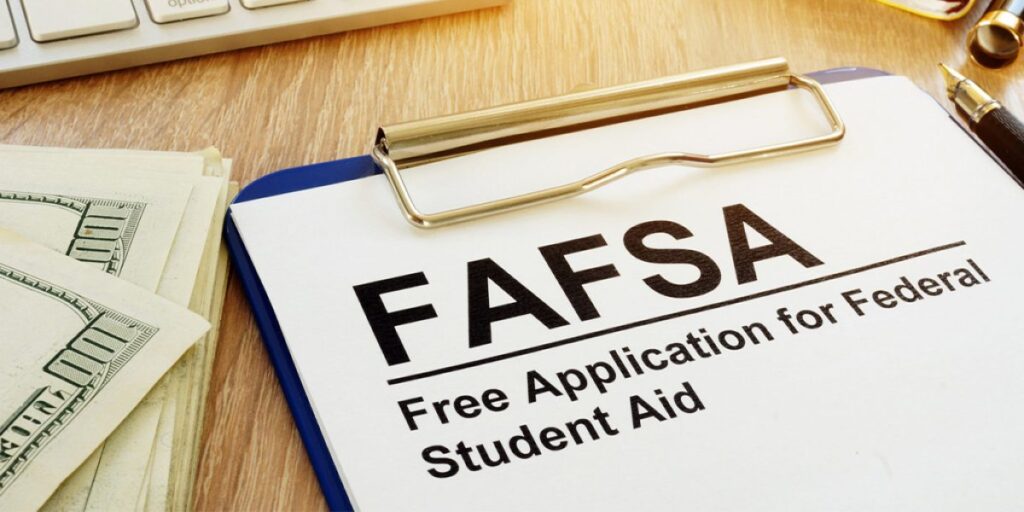The Free Application for Federal Student Aid, commonly known as FAFSA, is a crucial step in securing financial assistance for higher education. This application determines a student’s eligibility for various types of financial aid, including grants, scholarships, and loans, offered by the federal government, state governments, and colleges or universities.

Importance of FAFSA
FAFSA serves as a gateway to accessing financial resources that can significantly alleviate the burden of college expenses. By completing the FAFSA, students gain access to a wide range of financial aid options, making higher education more accessible and affordable.
Who Can Apply for FAFSA?
Eligibility Criteria
To be eligible for FAFSA, students must meet certain criteria, including:
- U.S. citizenship or eligible noncitizen status
- Enrollment in an eligible degree or certificate program
- Demonstrated financial need
- Compliance with Selective Service registration requirements (for male applicants)
How to Apply for FAFSA
Applying for FAFSA involves several steps, but the process can be simplified by following a systematic approach.
Step-by-step Guide
- Create an FSA ID: This serves as your electronic signature and allows you to access and sign your FAFSA electronically.
- Gather Required Documents: These may include Social Security numbers, tax returns, and bank statements.
- Complete the FAFSA Form Online: The FAFSA form is available online, and it’s essential to provide accurate information to ensure eligibility for financial aid.
- Submit the FAFSA: Once the form is completed, review it carefully before submitting it electronically.
Documents Required for FAFSA
When completing the FAFSA form, applicants need to have certain documents on hand to provide accurate information, such as:
- Social Security numbers
- Federal income tax returns, W-2s, and other records of money earned
- Bank statements and records of investments (if applicable)
- Records of untaxed income (if applicable)
Common Mistakes to Avoid
When filling out the FAFSA form, it’s essential to avoid common errors that could delay or jeopardize financial aid eligibility. These mistakes include:
- Providing incorrect personal or financial information
- Missing deadlines
- Failing to report all sources of income
Deadline for FAFSA
The deadline for submitting the FAFSA varies depending on the academic year and the state or college/university requirements. However, it’s crucial to submit the FAFSA as early as possible to maximize eligibility for financial aid.
Understanding FAFSA EFC (Expected Family Contribution)
The Expected Family Contribution (EFC) is a crucial component of the FAFSA process. It represents the amount of money the student’s family is expected to contribute toward college expenses. The EFC is determined based on various factors, including income, assets, family size, and the number of family members attending college.
Types of Financial Aid Available
Grants
Grants are a form of financial aid that does not need to be repaid. They are typically awarded based on financial need and may be provided by the federal government, state governments, or colleges/universities.
Scholarships
Scholarships are another type of financial aid awarded to students based on academic achievement, athletic ability, or other criteria. Unlike loans, scholarships do not need to be repaid and can significantly reduce the cost of higher education.
Work-Study Programs
Work-study programs provide students with the opportunity to work part-time while attending college. These programs offer valuable work experience and help students earn money to cover educational expenses.
FAFSA Renewal Process
Students are required to renew their FAFSA each year to continue receiving financial aid. The renewal process involves updating financial information and submitting the FAFSA form for the upcoming academic year.
Effect of FAFSA on College Admission
Completing the FAFSA can also have an impact on college admission decisions. Some colleges and universities consider financial need when reviewing applications, and demonstrating financial need through the FAFSA may increase the likelihood of admission or receiving merit-based aid.
FAFSA Tips and Tricks
- Start Early: Begin the FAFSA process as soon as possible to avoid missing deadlines.
- Be Accurate: Provide truthful and accurate information to ensure eligibility for financial aid.
- Seek Assistance: If you encounter difficulties or have questions, don’t hesitate to seek guidance from financial aid advisors or online resources.
FAQs about FAFSA
- What is the deadline for submitting the FAFSA?
- The deadline varies depending on the academic year and the institution, but it’s advisable to submit the FAFSA as early as possible.
- Can undocumented students apply for FAFSA?
- Undocumented students are not eligible for federal financial aid but may be eligible for state or institutional aid in some cases.
- Do I need to include my parents’ information on the FAFSA?
- Dependent students are required to provide parental information on the FAFSA, while independent students may be exempt from this requirement.
- Can I submit the FAFSA if I haven’t filed taxes yet?
- Yes, you can use estimated income information on the FAFSA if you haven’t filed taxes yet, but it’s essential to update the information once taxes are filed.
- Is the FAFSA application free?
- Yes, the FAFSA application is free to complete and submit. Beware of scams offering assistance for a fee.
Conclusion
Completing the FAFSA is a crucial step in securing financial aid for higher education. By understanding the process and following the necessary steps, students can access a wide range of financial resources to pursue their academic goals
